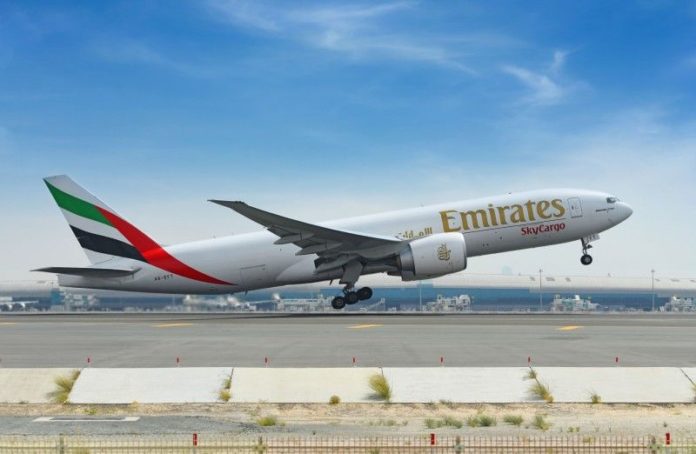Emirates SkyCargo has added two leased Boeing 747-400Fs to its freighter fleet, the first instalment of a plan to double its capacity in next decade.
The Dubai carrier is expecting 15 more freighters to join its fleet from announced orders and its freighter conversion program, plus a boost in belly-hold capacity from new passenger aircraft deliveries starting with Airbus A350s in late summer 2024, followed by 777-Xs the year after.
It also expects to add over 20 new destinations to its freighter network.
Divisional senior vice president, Nabil Sultan, said: “While the current market volatility may cause others to hesitate, Emirates SkyCargo is pushing full steam ahead with our plans. The medium to long term projections for global air cargo show an upward trajectory of between 3-5%. Combine that Dubai’s strategy to double its foreign trade where multi-modal logistics will play a big role, and the economic activity happening in markets around the Gulf, West Asia, and Africa, and the opportunity for Emirates SkyCargo is clear.
“The two new 747-Fs which we have leased will give us immediate capacity, while we wait for delivery of five new 777Fs in 2024 and 2025, and 10 777-300ERs to roll out of our conversion program over the next five years.
Secured on a long-term wet-lease basis, the two Boeing 747-Fs complement Emirates SkyCargo’s existing fleet of 11 Boeing 777 freighters, and are currently being deployed to Chicago three times weekly and to Hong Kong nine times weekly.
Emirates SkyCargo has also launched two new tailor-made solutions for the global healthcare industry.
Emirates Vital will be used to transport clinical trials, human organs and tissues, cell and gene therapy, with a ‘control tower’ team monitoring every shipment and with speeded up connection times in Dubai for shipments of under four hours by utilising the bulk hold of the aircraft and dedicated vans on the ramp to move the shipments to the connecting flights.
Emirates Medical Devices transports everything from ventilators and test kits, to X-ray machines and MRIs. It ensures all cargo moved follows Medical Device Regulations and Good Distribution Practice.










